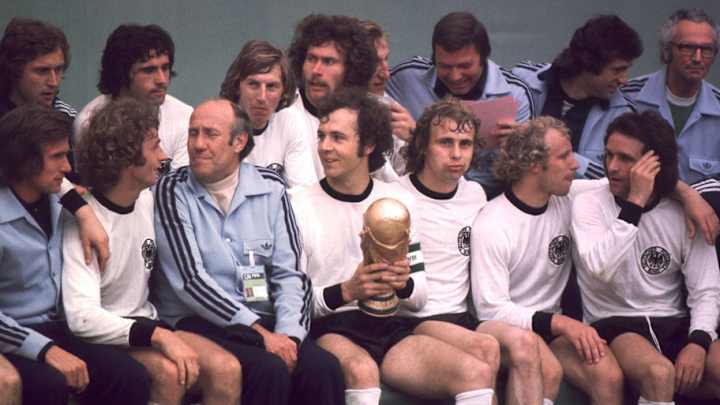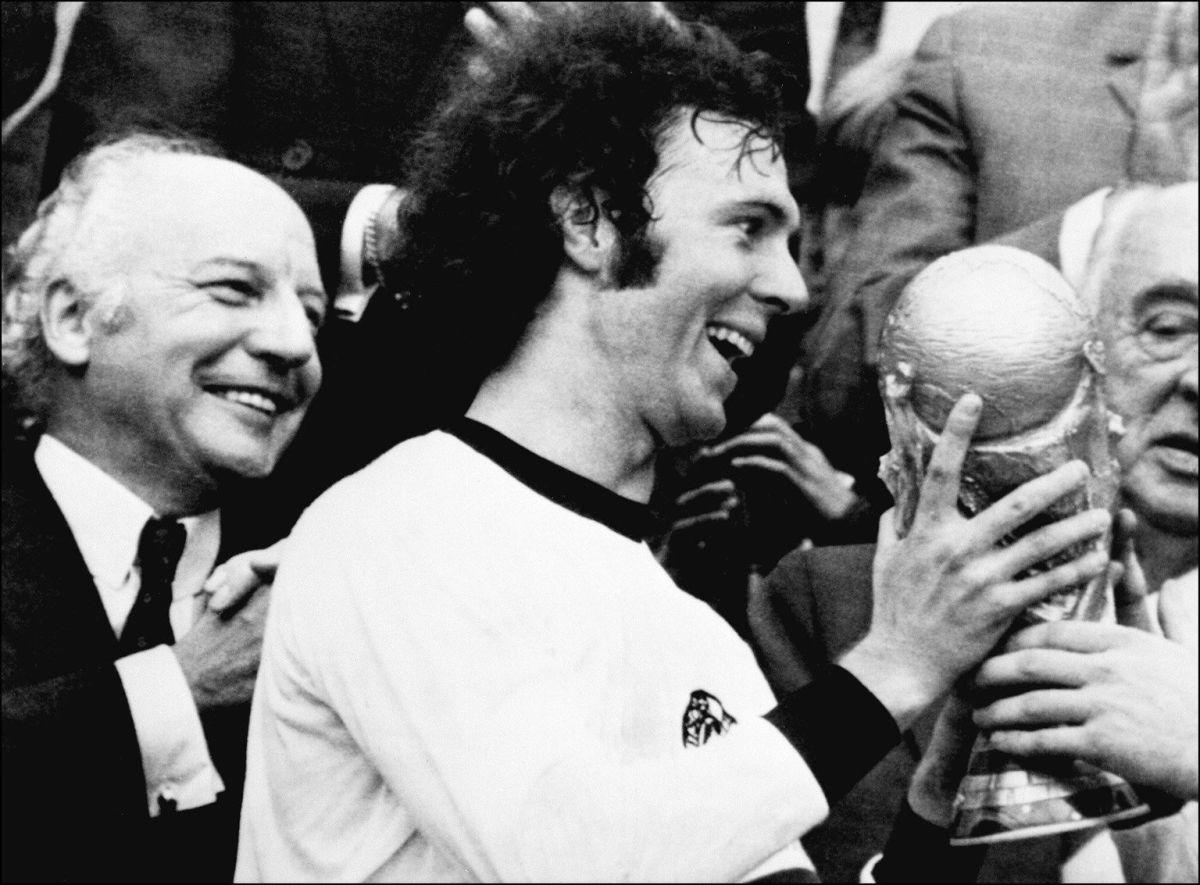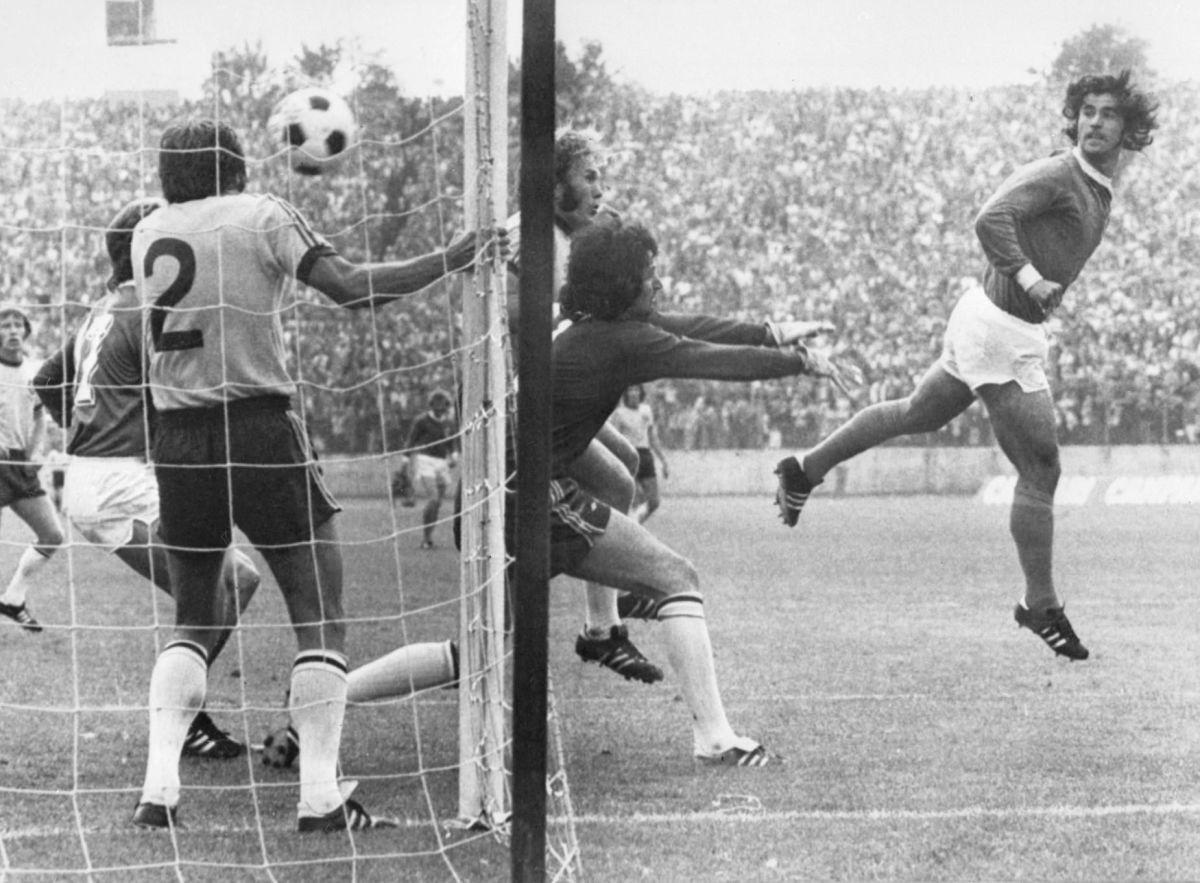World Cup Countdown: 11 Weeks to Go - The Crowning of 'Der Kaiser', Franz Beckenbauer

In what was his third and final World Cup for West Germany in the 1974 edition, it was to be Franz Beckenbauer's last chance to win football's biggest prize.
With this tournament being held on home soil however, Beckenbauer and co. hoped to put the agony of previous competition shortfalls behind them and recapture a trophy that had eluded a nation for two decades.
7th July 1974 proved to be a culmination of what was a magnificent three year spell for Der Kaiser for both club and country, the pinnacle for him finally being able to get his hands on a World Cup and affirm his status in the annuls of football as 'The Emperor'.

One of the undoubted legends of the game, Beckenbauer stood out as a great in what was a generation of great players. A two-time Ballon d'Or winner and four-time German Player of the Year among a career of countless personal accolades, he was a torchbearer for the modern centre back we see today. He married courage with craft and authority with elegance, whilst managing to back up his unquestionable talent with a plethora of silverware.
Putting the disappointment of finishing second and third in the 1966 and 1970 World Cups, a gap that still yielded a Bundesliga title, three DFB-Pokal's and UEFA Cup Winners' Cup for his beloved Bayern Munich, 1971 to 1974 proved to be a trophy-laden spell in the career of Beckenbauer.
Captaining both club and country, Beckenbauer won three further Bundesliga titles, another DFB-Pokal and the first of three successive European Cups, while winning the UEFA European Championships for West Germany in 1972, seemingly the perfect warm up to win the one trophy that had eluded him up to this point: a World Cup.

(You may also be interested in World Cup Countdown: 11 Weeks to Go - East Germany Silence Their Noisy Neighbours in 1974)
Leading Helmut Schon's 1974 team on home soil, West Germany were placed in Group 1 alongside Chile, Australia and East Germany. Having already secured their place in the next round thanks to 1-0 and 3-0 wins against Chile and Australia respectively, a politically charged final group game against their Eastern counterparts gave West Germany a rude awakening.
Falling 1-0 in what was an indelible World Cup shock, it perhaps proved to be a turning point in the mindset of Beckenbauer and his teammates if the Bayern man was to realise his aspiration of winning football's biggest tournament.
When the second round rolled around, West Germany looked a different prospect. Comfortably dealing with Group B opponents Yugoslavia and Sweden with 2-0 and 4-2 wins, their final group game against a dangerous Poland side proved to be a straight shootout for a place in the final.
In what to be a tense, rain-sodden encounter, a single Gerd Muller goal 15 minutes from time decided the game, thus booking Beckenbauer's date with destiny. All that stood in his and West Germany's way was arguably one of the best teams football has ever seen.
🇳🇱 2-0 🇧🇷#OnThisDay in 1974, the Dutch defeated #WorldCup holders Brazil
— FIFA World Cup (@FIFAWorldCup) July 3, 2016
Read > https://t.co/0NTerpzc1r pic.twitter.com/IBypplNXOb
Holland's devastating 'Total Football' meant they somewhat waltzed their way to the final in Munich. Seeing off all-comers with a potent combination of elegance, fluidity and ruthlessness, the Dutch appeared to be strong favourites to claim their maiden World Cup; especially considering the talents of Johan Cruyff, Jonny Rep and Johan Neeskens at their disposal.
After two minutes of the final, the presupposed inevitable appeared to be taking shape as Neeskens' scored a penalty for Holland following Uli Hoeness' uncultured challenge on Cruyff, making West Germany's mountain significantly steeper.
Despite the initial setback, the 75,000 inside the Olympiastadion, many of which were in the corner of their hosts, saw the Dutch appearing to take their proverbial foot off the gas, something that Beckenbauer himself noticed during the game, stating:
"The Dutch eased off and we were able to get into the match. And once you’ve relaxed your grip, it’s hard to recover the initiative," and managed to take full advantage.
West Germany recognised this and regained a foothold in the the game thanks to a penalty of their own in the 26th minute. Paul Breitner converted the spot kick after a foul on Bernd Holzenbein by Wim Jansen as Holland's air of invincibility began to dissipate.
By half time, West Germany would be entering the interval with a 2-1 lead as perennial goalscorer Muller made his mark in the final with a crisp shot on the turn to give the hosts the lead. All West Germany had to do now was shut out a free-scoring Netherlands in the second half. Thankfully for West Germany, they had Beckenbauer.
Johan Cruyff on his way to Franz @beckenbauer (1974)#WorldCup #Final #München #Olympiastadion #Mundial #fifa #JohanCruyff #knvb #Deutschland pic.twitter.com/SbKgGgsNEY
— MotherSoccer (@MotherSoccerNL) October 7, 2017
(You may also be interested in World Cup Countdown: 11 Weeks to Go - 'Cruyff, Champagne and Naked Girls')
With Holland laying siege on West Germany's goal for the majority of the second period, Beckenbauer stood firm throughout their onslaughts, leading by example as all great captains seem to do in vital moments.
He proved why he earned the title 'Der Kaiser' following his defensive performance in the final, the Dutch attack that had been so potent in their run to the final had been nullified; their 'Total Football' blueprint appeared to have a flaw in its execution by the name of Franz Anton Beckenbauer.
Seemingly out-thought and out-fought, time and again Dutch attacks would be repelled by the impassable Beckenbauer, whether it was a towering header, perfectly executed tackle, or continually maintaining a calm exterior in a game of such magnitude.
All that was left was for English referee Jack Taylor to bring an end to proceedings, confirming West Germany's second World Cup victory. For Beckenbauer, he emulated a contemporary in fellow defender Bobby Moore and led his country to World Cup success in their own backyard, while West Germany made history by becoming the first European country to simultaneously hold both the European Championships and the World Cup.
#ThrowbackThursday: 42 years ago today, #GER won the 1974 @FIFAWorldCup, beating the Netherlands 2-1 in the final! 🏆 pic.twitter.com/sq91k3rQUR
— German Football (@DFB_Team_EN) July 7, 2016
With his name cemented in the history of football, it would come as no surprise the adulation he would receive throughout a storied career. Perhaps most appropriate however would be the summary painted by Brazilian legend Pele, stating:
"He's a great mate. As a player, he was marked out by intelligence rather than strength. He was more Brazilian than German as a footballer."
It may have taken three attempts for Beckenbauer, but he finally had his hands on the newly-designed World Cup trophy we've become accustomed to seeing today. A prize that had alluded the German at both 1966 and 1970, it fitting that Beckenbauer won the World Cup in his home country.
Winning in your own country seems to add another layer to the accomplishment, while also giving a West German crowd the chance to appreciate the crowning achievement of their hero, their leader, their emperor.
